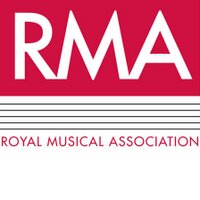Folk Music and the Political Imagination in Europe in the 1930s

- Date: Thursday 24 October 2024
- Location: Music
- Interval: Every day
- Until: Saturday 26 October 2024
- Cost: £5 - 20
The colloquium to be held at the University of Leeds will focus on the relationship between folk music and the political imagination in Europe in the 1930s.
As a social practice and a source of aesthetic emotion, music can be an ideal entry point for understanding the rethinking of the political imagination and the challenges to the liberal model in the 1930s. How does acoustic modernity, marked by the acceleration andinternationalisation of musical appropriation and circulation (with the rise of recording and radio, in particular), combine with the deployment of reactionary political thinking, which was dominated by local (national and regional) paradigms? Is the opposition between authoritarian regimes and liberal democracies reflected in the way these regimes mobilise the arts for political or diplomatic ends? These questions call for a two‑fold comparative approach: between different musical genres (classical, chanson, operetta, jazz, folklore) and between different European countries.
The colloquium to be held at the University of Leeds will focus on the relationship between folk music and the political imagination in Europe in the 1930s. During this decade, work on musical folklore, which had been underway since the end of the nineteenth century, took on a new dimension, particularly in terms of institutionalisation, internationalisation and political uses. In addition, the emergence of musical ethnology has given rise to debates on the definition of folklore and the realities it covers.
Registration for Royal Musical Association attendees (non-presenters):
-
£10 standard
-
£5 student/low income
Registration for non-RMA attendees (non-presenters)
- £20 standard
- £10 student/low income
Refreshments and lunches
- Thursday refreshments £5 / Buffet dinner £20
- Friday refreshments £5 / Lunch £10
- Saturday refreshments £5 / Lunch £10
Contact b.kelly1@leeds.ac.uk if you are interested in attending some of the events remotely.
PROGRAMME
Thursday 24 October
Conference Room
Welcome
14.30 -15.00 - Coffee/tea
15.00-16.30
Chair: Anaïs Fléchet
European folklore and traditions beyond Europe
Manon Fabre (Université Paris-Saclay, RASM-CHCSC)
Folklore, jazz et chanson : le « pot-pourri » des orchestres d’attraction dans les années 1930
Martin Guerpin (Université Paris-Saclay, RASM-CHCSC)
Folk, art, or commercial music? The European political imagination and the status of « arabic music » in the 1930s
Sue Miller (Leeds Beckett University)
The Legacy of Cuban Music Performance in Paris: degrees of Latin ‘enracinement’ in mainstream French popular music
Discussion
Buffet dinner in the seminar room
Attend Light Night in Clothworkers Concert Hall and on Campus
https://www.leeds.ac.uk/cultural-institute/doc/light-night-2024-university-leeds
Friday 25 October
9.00-10.30
Chair: Barbara Kelly
Folk music and the construction of national and transnational traditions
Renata Suchowiejko (Jagiellonian University, Kraków, Poland)
Is all-Slavic Music Possible? An Overview of the Slavophile Movement in Poland during
the 1930s: Cultural Initiatives, International Events and Political Contexts
Cătălina Constantinovici (independent scholar) and Daniel Ciucălău (independent scholar)
Les musiques roumaines dans l'imaginaire politique des années 30. Tendances et enquêtes.
Árni Heimir Ingólfsson (Copenhagen University)
Locals, Exiles, and Nation-Building Through Folk Song in 1930s Iceland
10.30-11.00 – coffee/tea
11.00-12.00
Chair: Martin Guerpin
Institutions and the political mobilisation of folk music
María Cáceres Piñuel (University of Basel, SNSF postdoctoral fellow) [online]
Folk Music and political imaginaries at the People’s Olympiad in Barcelona 1936. A frustrated attempt.
Kamille Gagné (Université de Montréal, OICRM, CRCMP)
Musical Education through Folklore: The Poetry and Musical Contests of the “Comité national de propagande pour la musique”?
Lunch: 12-1pm
Lunchtime concert: 1-2pm
https://concerts.leeds.ac.uk/events/marsyas-trio-2/
14.30-15.30
‘The Idea of Folk Music’, Ross Cole in conversation with Anaïs Fléchet
15.30-16.00 Coffee/tea
16.00-17.00
Chair: Anita Mayer-Hirzberger
Folk music, politics and technologies
Jiří Čevela (Masaryk University in Brno)
Between Authenticity and Institutionalisation. Folk Music and Radiojournal Broadcasting in Czechoslovakia in 1930s
Panagiota Anagnostou, (University of Ioannina) and Nikos Ordoulidis (University of Ioannina)
Folk Music in Interwar Greece: The Realities of Discography vs the Perceptions of the Scholarly World
17.30-18.15
Discussion: Political appropriations of folk music traditions during the 1930s
18.30 – dinner
https://www.operanorth.co.uk/whats-on/light-night-leeds-dreaming-being/
Saturday 26 October
9.30 – 11.00
Chair: Martin Guerpin
Folk music and Fascism
Fritz Trümpi (University of Music and Performing Arts Vienna mdw) [online]
Goebbel’s Volklorism
Maurizio Coppola, Institut interdisciplinaire d’anthropologie du contemporain (EHESS/CNRS)
Le concept de « musique populaire » du fascisme italien au deuxième congrès des arts populaires (Anvers, 1930).
Anita Mayer-Hirzberger (University of Music and Performing Arts Vienna mdw)
Folk music as a way of “Volkserziehung” during the Austrofascist era (1933-1938)
11.00-12.00 coffee/tea
12.00-13.00
Chair: Barbara Kelly
The political spectrum of French folklorisme
François Gasnault (Cergy Paris Université – CNRS)
Postures du folklorisme français de l’entre-deux-guerres : maintenance, anarchisme et modernité
Sébastien Carney (Université de Bretagne Occidentale) [online]
La régénération par la danse ? Discours et pratiques des nationalistes bretons dans les années 1930.
13.00 Lunch and then close




